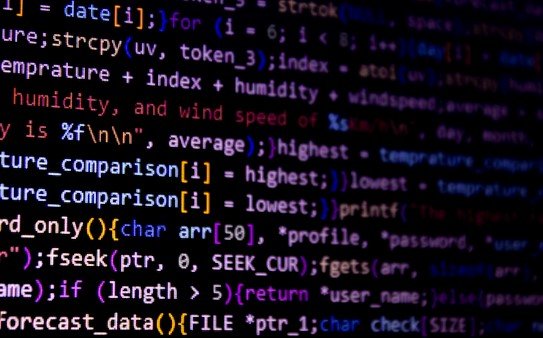Using Selenium Python for efficient Web Scraping

Web scraping continues to be an essential tool for obtaining information from the immense stretches of the internet in the constantly shifting field of web development and data extraction. Using Selenium Python is one of the most effective techniques to execute web scraping, especially for dynamic websites that primarily rely on JavaScript. In the coming years, this combination of technologies should provide a reliable way to streamline browser interactions and collect data from highly structured websites.
With the assistance of the robust browser automation tool Selenium, developers can dynamically simulate user behaviors within a web browser. Going through web pages, clicking buttons, completing forms, and extracting required content simulate how individuals use the internet. When Selenium is combined with Python, an adaptable language for programming renowned for its ease of use and large library, it becomes an even more powerful tool for web scraping tasks.
Selenium’s integration of Python’s XML parsing capabilities enables organized data management and manipulation during web scraping beyond simple extraction. Offering effective ways to parse, explore, and extract pertinent information from XML documents, adding more processing power to the data that has been scrapped.
This article will thoroughly grasp how to use Selenium Python for web scraping. Covering the ins and outs of web scraping with Selenium and Python, including why web scraping is done with Selenium Python, applications for web scraping with Selenium Python, and an explanation of Selenium Python’s function in web scraping. In conclusion,
What is selenium python web scraping?
Using Selenium in Python programming language enables the automation of data extraction from websites, known as Selenium Python web scraping. Selenium is best known for automating browsers to test web apps. Yet, it’s also popular for web scraping tasks when traditional libraries like BeautifulSoup or Scrapy can’t handle dynamic content or JavaScript.
Utilizing Selenium for web scraping is an effective technique for retrieving information from web pages. It enables testers to streamline the data collection process, saving time and effort. With Selenium, they can engage with websites like a human user and retrieve the required information more efficiently.
Components of Selenium Python Web Scraping
Some of the essential components of Selenium Python Web Scraping are as follows:
- Automation: Automation with Selenium enables the simulation of a web browser’s interaction with a webpage. This involves accessing web addresses, interacting with elements (buttons, links, etc.), completing forms, and additional tasks. This ability to automate is essential for extracting information from websites that heavily depend on JavaScript for displaying content.
- Dynamic Content Handling: Many contemporary websites utilize JavaScript to dynamically load content following the completion of the initial HTML loading. Selenium can wait for dynamic content to load to extract data, making it ideal for scraping websites with this feature.
- Browser Compatibility: Selenium is compatible with various browsers thanks to its WebDriver implementations. Testers can select a WebDriver according to their favorite browser, such as Chrome, Firefox, Safari, Edge, and more, providing flexibility when scraping various websites.
- Flexibility: Unlike conventional scraping libraries that analyze static HTML, Selenium engages with the web page live. This enables it to extract data from websites that require user interaction or JavaScript execution to access the data needed.
- Intricate Interactions: Selenium can manage intricate situations like logging in to websites, moving through various pages (pagination), handling pop-ups or alerts, working with iframes, and more. These functionalities allow for efficient data extraction from various sources.
Advantages of Selenium Python for efficient web scraping
There are several benefits to using Selenium with Python for web scraping, especially when working with dynamic content and interactive characteristics that are difficult to handle with traditional scraping libraries. The following are the most significant advantages of effectively using Selenium Python for web scraping:
- Interaction with dynamic content: Web pages that primarily rely on JavaScript for content loading and interaction can be rendered and interacted with using Selenium. This covers websites that dynamically update their content through AJAX requests. To scrape interactive elements, Selenium enables developers to replicate user behaviors, including clicking buttons, completing forms, and scrolling through pages.
- Support for multiple browsers: Selenium offers WebDriver interfaces for Chrome, Firefox, Safari, Edge, and other web browsers. Concerning its adaptability, users can select a browser that best matches their demands for scraping or simulating user behavior across various platforms.
- Automation of complex workflows: Because Selenium allows for automated web interactions, it’s the perfect tool for scraping websites that have complicated workflows, such as multi-step forms, material that requires logins, or content protected by JavaScript-based authentication systems or CAPTCHAs.
- Real-time page rendering: Selenium interacts with pages as they are rendered by a browser in real time, compared to static HTML parsers. This feature is necessary for scraping dynamic content that changes in response to user input or server answers.
- Testing and debugging capabilities: Created for automated testing, Selenium provides powerful tools for testing and debugging that may be used for web scraping. This entails examining website components, confirming data that has been scraped, and troubleshooting interaction scripts.
Disadvantages of selenium Python for efficient web scraping
Although Selenium with Python is a powerful online scraping tool, particularly when handling dynamic and interactive content, it has certain disadvantages and difficulties. Having a clear understanding of these disadvantages will enable users to confidently select a scraping tool. The following are some disadvantages of effectively scraping websites with Selenium Python:
- Reduced execution speed: Compared to libraries like BeautifulSoup or Scrapy, which parse HTML directly, Selenium is fundamentally slower because it interacts with web pages through browser automation.
- Resource-intensive: Compared to lightweight analyzer libraries, browser automation uses more CPU and memory on the system. When running numerous instances of Selenium for simultaneous scraping jobs, a machine with limited resources may experience decreased performance and even crash.
- Complexity of setup and configuration: Installing and properly configuring browser-specific drivers such as ChromeDriver and GeckoDriver is necessary to use Selenium. This configuration procedure might be difficult, particularly for new users or for distributing scraping scripts across multiple environments such as local computers, servers, cloud, etc.
- Dependency on browser versions: The version of the browser driver and the browser itself determines how well Selenium works with different browser versions. Updating the scraping scripts with changes to browsers or driver versions could result in maintenance expenses.
- Detection and anti-scraping measures: Websites can identify and stop efforts at scraping by detecting automated browsing actions, including those carried out with Selenium. One might need to employ proxies, rotate user agents, or introduce pauses between requests as additional techniques to reduce detection.
Advanced techniques for efficient web scrapping using Selenium python
Sophisticated techniques may significantly enhance the effectiveness and efficiency of web scraping using Selenium and Python, particularly in cases with dynamic content, AJAX queries, and interactive elements. One can use the following cutting-edge methods and approaches to streamline the web scraping procedure:
- Taking care of cookies and authentication: Find login form elements, fill them in with credentials, and track session cookies to automate login procedures. This ensures that access to restricted material is maintained throughout many scraping sessions by maintaining the authenticated status.
- Using proxy servers: Set up Selenium to use proxy servers to simulate requests from different IP addresses, mask your IP address, and bypass IP blocking. This helps it stay anonymous and avoid access restrictions.
- Implementing parallel scraping: Using Threading or Multiprocessing to Scrape Multiple Pages at Once, this technique lowers the total amount of time spent scraping, which is particularly helpful for large-scale scraping tasks where speed is of the essence.
- Advanced-data handling: Organize and store the scraped data in a structured manner using databases for structured storage or libraries like Pandas for data manipulation. This guarantees that the data is accessed, arranged, and prepared for additional analysis or integration into other systems.
- Headless browser mode: Selenium can execute web scraping without displaying a browser window when run in headless mode. This is helpful when Graphical user interaction is not required, lowers resource use, and expedites scraping operations.
Best practices for efficient web scraping using Selenium python
To guarantee successful and efficient web scraping with Selenium and Python, it’s critical to adhere to best practices that maximize dependability, performance, and moral standards. Below are some recommended best practices:
- Use headless browsers: By removing the requirement to render a Graphical User Interface, Selenium running in headless mode speeds up scraping operations and uses fewer resources.
- Optimize locator strategies: To find elements, use effective XPath expressions or CSS selectors; stay away from excessively general queries, which can cause scraping to lag.
- Effectively handle browser instances: When possible, reuse browser instances to reduce resource overhead and startup time, particularly when there are several scraping operations.
- Emulate human behavior: Add unpredictable delays between actions to resemble human behavior. Rotate user agents or IP addresses to evade detection and avoid IP blocking.
- Watch resource utilization: During scraping operations, monitor CPU, memory, and network utilization to see any inefficiencies or bottlenecks that could affect performance.
- Use Logging and Debugging: To aid with troubleshooting and analysis, log scraping actions, errors, and debugging information.
- Continuous testing and maintenance: Test and maintain scraping scripts regularly to ensure data is accurate, adapt to changes in website structure and improve performance over time.
Read also: Big Data and IoT: A Match Made in Tech Heaven
Testing with selenium Python for efficient web scrapping through LambdaTest
Running Python Selenium tests on a variety of virtual browsers, browser versions, and operating systems is where cloud platforms are quite helpful. One such platform is LambdaTest. It is an AI-powered automation testing platform that allows you to run automation tests and manuals with over 3000+ browsers, real devices, and OS combinations.
This scalable cloud infrastructure enables testers and developers to perform automatic and manual testing across various browsers, operating systems, and mobile devices. Its goals include making cross-browser testing easier and guaranteeing performance and compatibility in various scenarios.
It makes cross browser compatibility testing easier with Selenium Python, enabling developers to easily evaluate scraping scripts on several platforms and browsers. This feature ensures that scraping results are constant in various user situations, which improves the dependability and strength of data extraction operations.
One can simulate web scraping using Selenium Python and gain more scalability, efficiency, and debugging simplicity by using LambdaTest. Teams can use it to expedite development cycles, simplify testing, and produce high-caliber scraping solutions that satisfy performance requirements in various browser scenarios.
Conclusion
Selenium Python is a strong option for effective online scraping because of its strong automation features and adaptability while managing dynamic web information. Utilizing Selenium Python, developers can efficiently explore and engage with intricate web pages, guaranteeing thorough data extraction for various applications.
Simply put, Selenium Python allows developers to overcome web scraping obstacles, so testers who need reliable data extraction from dynamic and interactive websites choose it. Because of its adaptability and extensive toolkit, it can effectively handle various scraping circumstances while meeting functional and performance requirements.



